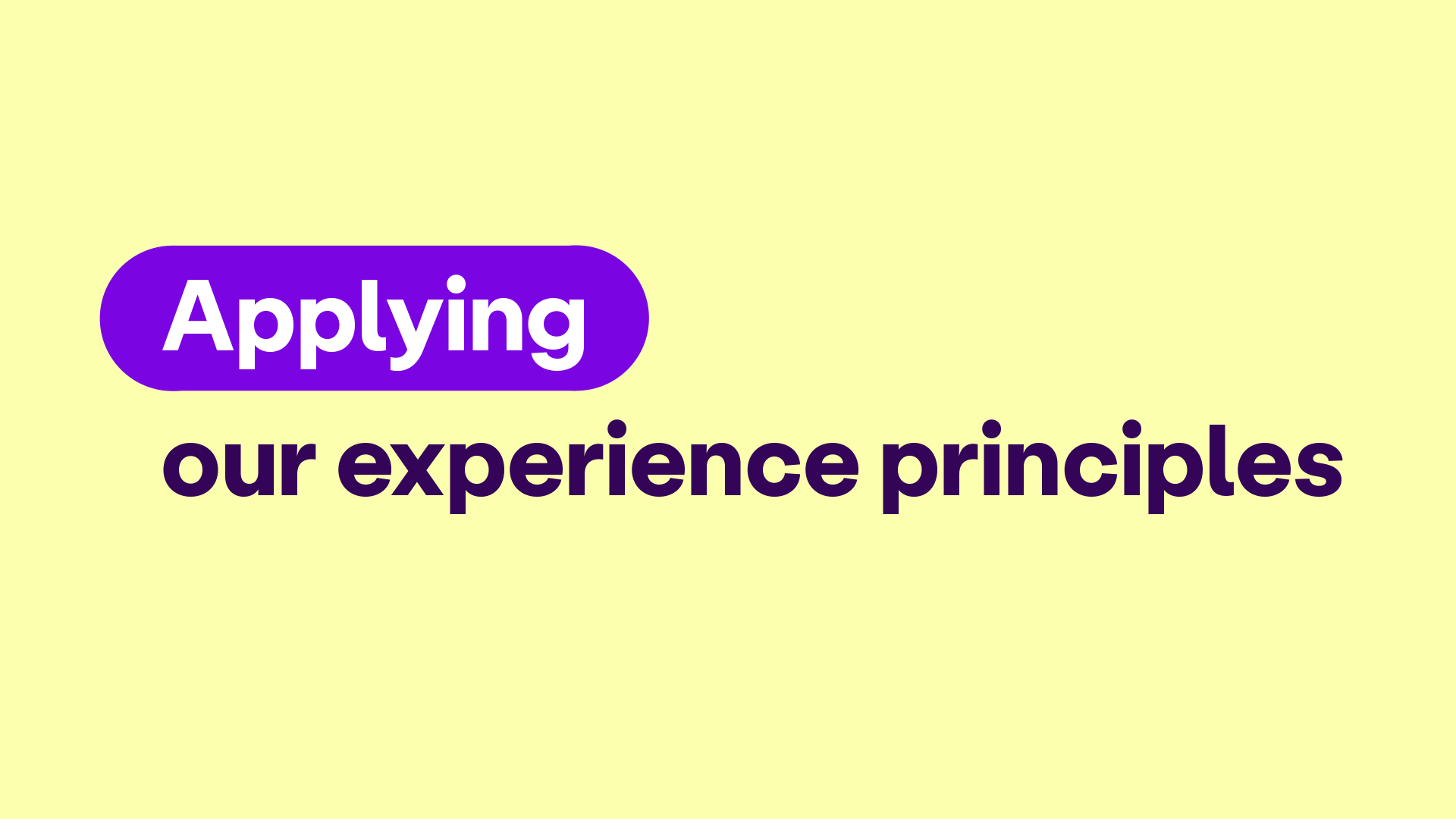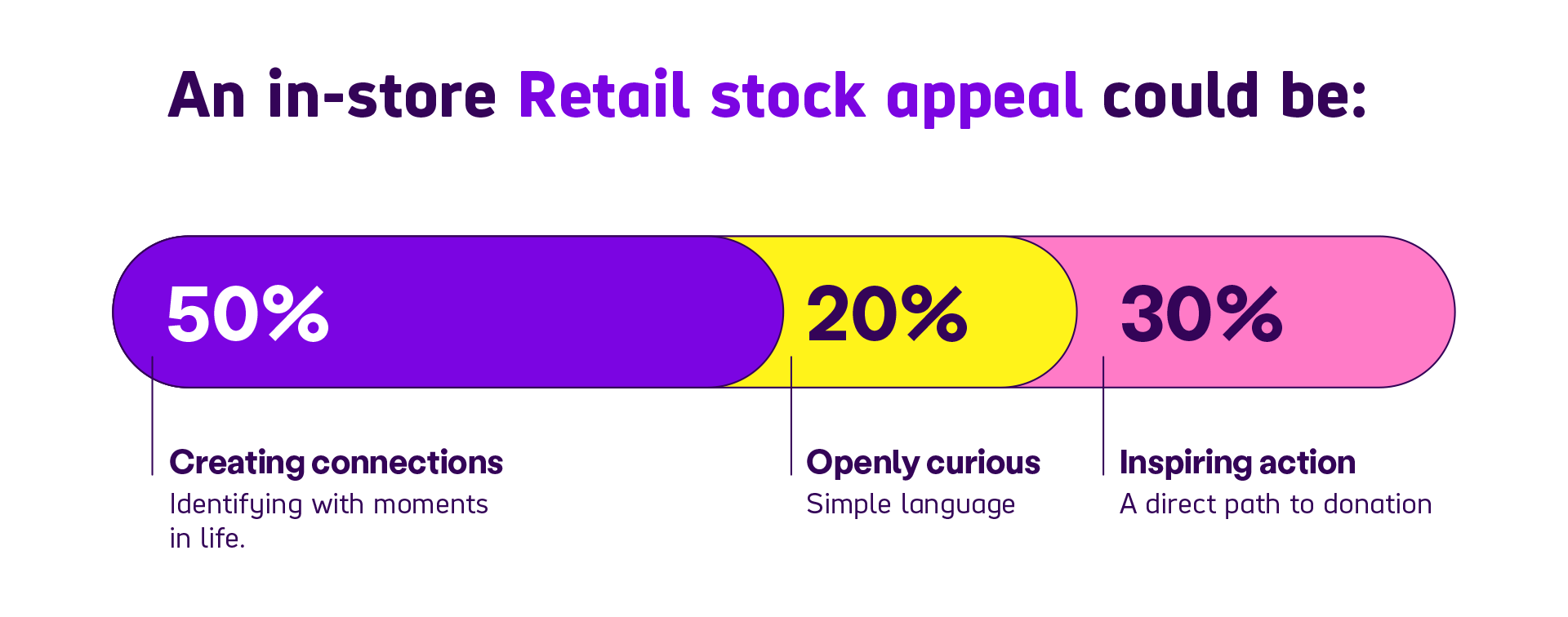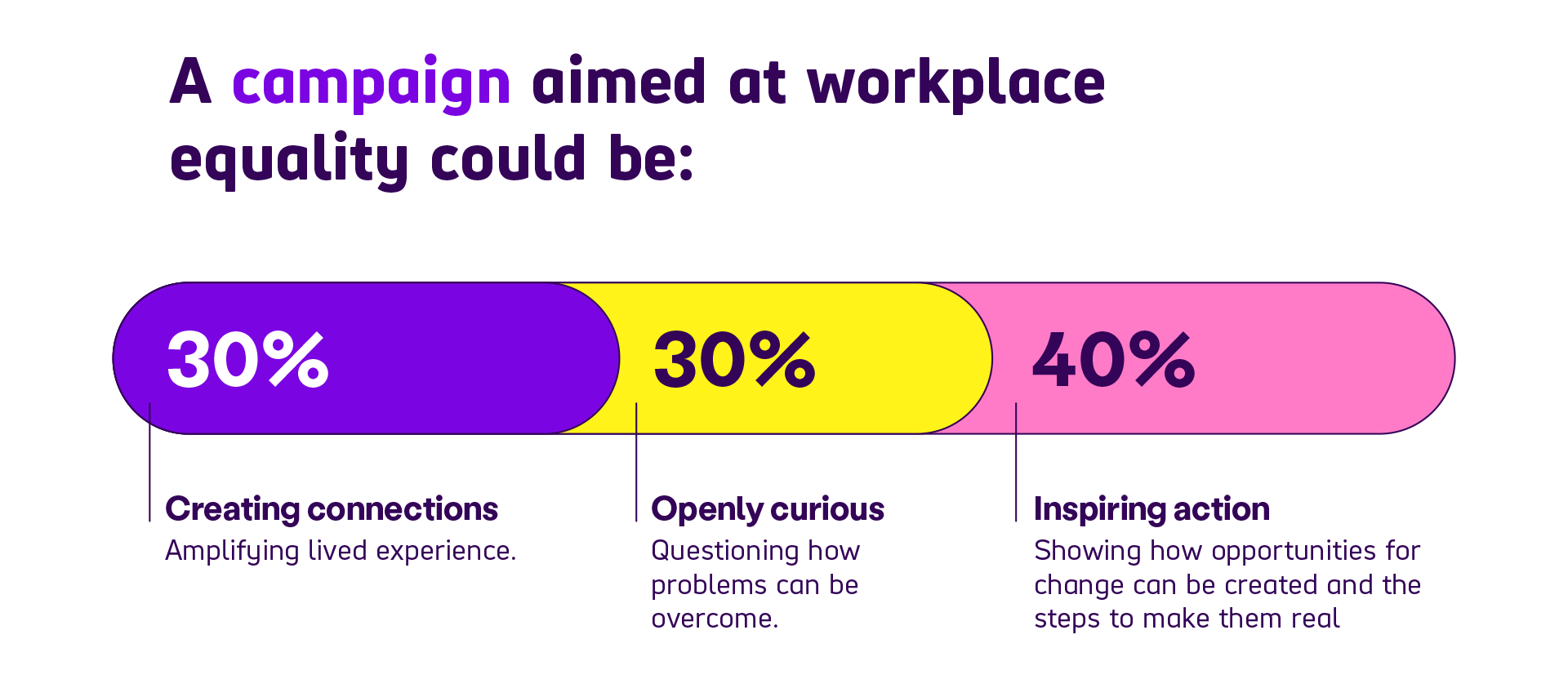- Home
- Brand guidelines
- Guidelines
- How we sound
- Applying our experience principles

Our 3 experience principles are present throughout all of our communications.
How present they are depends on the type and intention of the piece.
In-store retail stock example

We have just a moment to grab attention as passers-by glance at the window or customers look around the shop. We lean heavily into creating an initial connection, which will make them read on so we can inspire them to action.
An in-store retail stock appeal could be:
50% Creating connections
Identifying with moments in life.
20% Openly curious
Simple language.
30% Inspiring action
A direct path to donation.
Workplace equality campaign example

People may not realise the barriers many disabled people have with getting into and staying in work. This means balancing education with connection. This leads onto inspiring the actions the campaign is aimed at.
A campaign aimed at workplace equality could be:
30% Creating connections
Amplifying lived experience.
30% Openly curious
Questioning how problems can be overcome.
40% Inspiring action
Showing how opportunities for change can be created and the steps to make them real.
How we sound when we're creating connections
- A sense of togetherness, writing with the collective ‘we’
- Speaking at the same level, never up or down
- Storytelling with real life quotes and experiences
- Non judgemental tone, we’re here to listen to each other
- Connecting through identifying, empathy and humour
What we'd say...
Human, positive, open.
“An equal future starts with all of us.”
Not...
Formal, directive, closed.
“It will take the efforts of many to create an equal future.”
How we sound when we're openly curious
- Straight forward language, we avoid jargon and write simply
- Informing and educating by sharing evidence, facts and truths
in an easy to understand way - Asking questions of why things are the way they are and what
could be possible - Always learning, listening and evolving
What we'd say...
Simple, accessible, interested.
“The support available from the government isn’t enough to give disabled people an equal standard of living”
Not...
Full of jargon and acronyms.
“Even combining PiPs and the DLA, disabled people face a significant financial shortfall compared to non-disabled people”
How we sound when we're inspiring action
- Small steps - breaking it down to make it easier to take action
- Shorter, sharper moments of action with language to match
- Actively courageous, prepared to make change happen
- Calling people in instead of calling people out. We are provocative
and direct when it’s needed but not aggressive.
What we'd say...
Powerful, urgent, connected.
“Our chance is now. Together, we can make change."
Not...
Shouty, aggressive, convoluted.
“If we don’t act now the consequences will be dire, we will have lost our chance and fail to make the change we want”.
More examples
1. Creating connections
“We are Scope. We’re millions of voices, unmissable and proud, and we’re here to create an equal future for disabled people.”
“An equal future starts with all of us.”
2. Openly curious
“We all know life costs more when you’re disabled. On average, £975 a month more. We call this the disability price tag and we want to end it.”
"Not all disability is obvious. In the UK, 80% of disabled people live with conditions which you might not notice. How would you approach asking about disability?"
3. Inspiring action
"Disabled people still face inequality and prejudice. We can change this, and it’s going to take all of us."
"If you want to work you should be able to. It’s that simple. But many disabled people face barriers getting into and staying in work. This is a waste of time and talent. Time to fix it."

